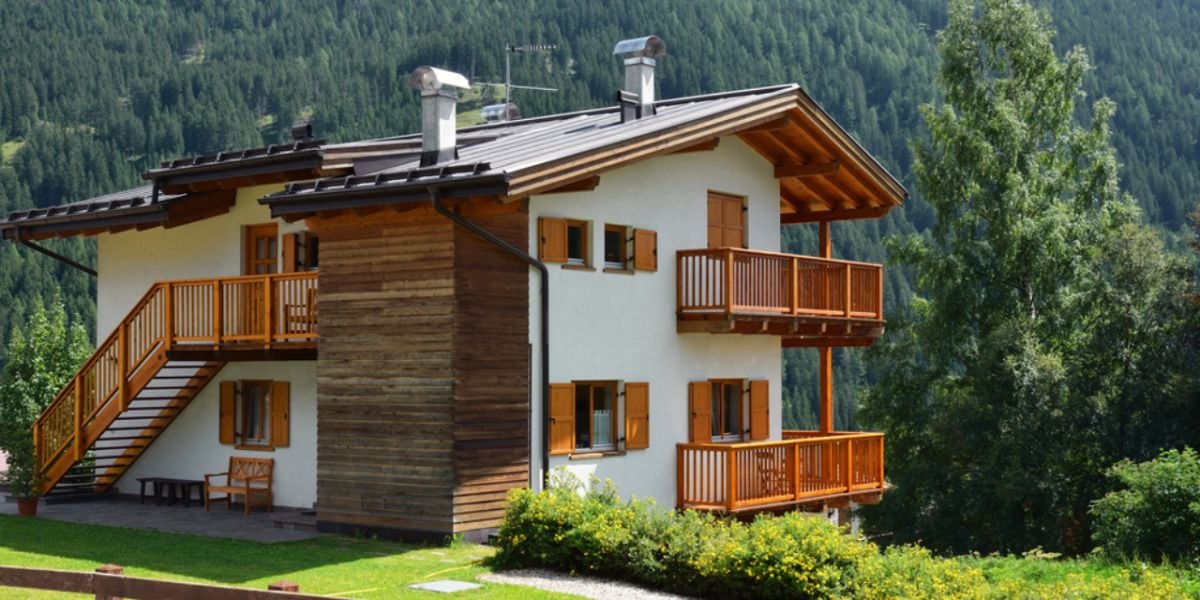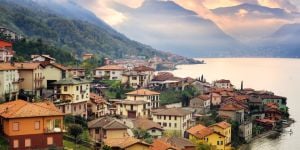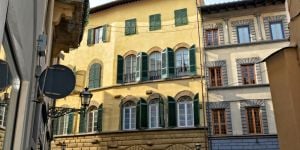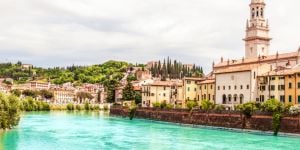
If you want to sell your home as part of your move to Italy, why not buy again once you are here? Or why not consider investing in a second home in the land of la dolce vita? Buying is a good alternative to renting in a property market that is consistent with the rest of Europe. If your dream is to buy a property in Italy, we will try to give you some useful tips in this article.
Who can buy a property in Italy?
While Italy is generally perceived as a 'no purchase restrictions' country, there are many restrictions to which expatriates may be subject. EU nationals have the right to buy property in Italy, as elsewhere in Europe, while non-EU nationals must have a valid residence permit.
Italy has a culture of reciprocity, principio di reciprocità, which means that citizens of countries that have a reciprocity agreement with Italy can also buy property in Italy. For example, if you live in a country where Italians can buy property, you have the right to buy property in Italy. For a full list of countries with a reciprocal agreement with Italy, visit the Ministry of Foreign Affairs website.
Good to know:
It is advisable to contact a lawyer and notary from your country of citizenship, ideally, one who speaks Italian and will represent your interests or at least assist you in your dealings.
Type of property expats can buy in Italy
Italy has a wide variety of properties spread across the country, both in urban and rural areas. However, we can group them as follows:
- flats;
- two-, three- and four-fronted houses, mainly in the provinces and outside the major cities;
- villini, considered small villas that usually have four facades and a garden;
- villas with a larger plot and sometimes a swimming pool;
- rustico or cascina, agricultural type housing, transformed (or to be transformed) into housing with extensive grounds (you find many of these, especially in Umbria and Tuscany);
- ville, dimore, palazzi storici (historical villas and residences, or palaces).
If you decide to buy a property in a large city, such as Milan or Rome, you will find mainly flats. The buildings are mostly historical, but in recent years there has been a renaissance in some areas and the construction or renovation of buildings to the latest energy standards.
If you are buying a flat in a building in Italy, it is important to check the conditions of the property you are interested in, as well as elements such as heating, electricity, the general appearance of the condominium, urban planning constraints, and, above all, cadastral conformity. If necessary, you can ask for an expert's opinion who will evaluate the property for you according to these criteria. This service has a cost, of course, but it can be useful during your search for a home. The expert can be an architect or a surveyor (known as perizia immobiliare).
The types of flats you can find in Italy are:
- Monolocale: studio apartment (from 25 - 40 m²)
- Bilocale: two-room flat (from 50 - 60 m²)
- Trilocale: three-room flat (from 80 m²)
- Quadrilocal: four-room flat (from 100 - 120 m²)
- Attico: penthouse with a terrace, usually of large dimensions
However, this will not stop you from finding an ideal rural Italian space and experiencing off-the-beaten tracks in the countryside. Outside of the big cities, Italy is made up of many small provincial towns and charming villages where the quality of life is of a high standard. You can buy a house or a villa with a garden. Other country houses are also available for sale in most Italian regions, some already renovated; others are farmhouses or agricultural dwellings still to be restored.
Good to know:
Some areas of Italy are very beautiful but can sometimes be isolated. Be sure to check out the area before you start the process of buying your property. Having a community, a small commercial center with some shops, a doctor's surgery, and one or two banks in the same area as your house is useful. Also, check the coverage of the internet, telephone and electricity networks.
Furthermore, if you are planning to buy this kind of property and then rent it out to tourists and foreigners as a holiday home, it is advisable to buy near a place of historical or natural interest such as a beach, mountain, nature reserve, and other landscapes, etc., or to equip your house with facilities such as a swimming pool.
How to find properties to buy in Italy?
As with renting, it is advisable to research the Internet to get a good idea of the types of property available on the market and their prices. Popular property websites include Immobiliare, Idealista, Tecnocasa, Casa Travella, Trovacasa and Casa.it. Websites such as Idealista and Rightmove will allow you to discover properties listed by different real estate agencies.
You can also contact the Italian branches of international real estate agencies such as Engel & Volkers, Knight Frank, or Lionard in the luxury category. Many local Italian agencies can also provide good support; find out which ones are active in the area where you want to buy a property.
Within the agencies, you can use a property finder to help you find the type of property you seek. This specialized real estate agent deals exclusively with clients who wish to buy a property in Italy and, based on your briefing, will submit the results of their search to you, whether it be houses, flats, flats or villas, etc. Please note that this service is paid, and the remuneration of this specialist is linked to the outcome of the mediation in case you buy one of the properties proposed. If you use this service, ensure you find out in advance what commission the property finder charges. This can be useful and worthwhile, especially if you live abroad and it's not easy for you to travel.
Good to know:
Make sure that the property finder is registered with the Chamber of Commerce (Camera di Commercio, Industria, Artigianato ed Agricoltura) before contacting him/her.
Property taxes in Italy
Make sure you are aware of the additional taxes and bureaucratic specificities applied on property in Italy and in the province where you are looking to buy. It is advisable to contact a notary for this purpose.
Italy has agreements with many European countries to avoid double taxation on income and assets for foreigners working in Italy or wishing to buy property there. The European Union website lists the countries that have agreements with Italy.
Generally, taxes payable by purchasers vary according to the type of property purchased, the assets and the seller. If the seller is an individual or a company not subject to VAT, tax rates will be as follows:
- Registration tax of 9%. If it is your first home, prima casa, a 2% tax break is applicable. However, if the property purchased is in a luxury category (A/1, A/8, A/9: historic houses and villas, palaces and castles), you will not be entitled to any tax break.
- Mortgage and cadastral tax, each of €50
- IMU (Imposta Municipale Propria) if the property purchased is considered a second home (the IMU does not apply to the purchase of the first home or main residence)
- TARI or waste tax.
Good to know:
In addition to these taxes, at the time of purchase, you may have to add other costs: notary, lawyer, translator, real estate agency commission, etc.
Steps to buying property in Italy as an expat
As with buying property in any country, the process in Italy can be long and complex. Once you have found a property through an estate agent, you will be asked to make a written offer, proposta di acquisto, which the estate agent will give to the seller. If you need financing, consider applying for a housing loan from a financial institution. This process can be lengthy, as the bank has to carry out several checks on your professional and personal background and the property before approving your request.
After this, the two parties usually agree on the drafting and signing of a preliminary contract, also known as a preliminary sales agreement (contratto preliminare or compromesso), which the real estate agent, as a mediator, must register within 20 days (or 30 days if a notary is involved). The registration fee with the Agenzia delle Entrate (Italian tax authorities) is €200, regardless of the property's price. It is also customary to pay a deposit on the total amount of the sale; there is no fixed amount, but you should expect to pay about 10-15%. Through this contract, the parties undertake to sell/purchase the property and to finalize a definitive sales contract, called contratto di compravendita. This is signed before the notary in the presence of all parties. The notary will send you all the final documents related to the transaction after registration with the Agenzia delle Entrate
Important:
To buy a property in Italy, you must have a codice fiscale, which can be requested from the Agenzia delle Entrate or from an Italian Consulate in your country of origin. In addition, to transfer money to the owner, it is advisable to open a bank account in Italy. An alternative would be to make an escrow deposit with your notary. Of course, you should check the feasibility of this option with your bank.
If you have little or no knowledge of Italian, we advise you to use a translator and/or interpreter to help you with all the procedures.
Things to check when buying property in Italy
To become a homeowner in Italy, you are advised to check several things before signing a preliminary sales agreement. These include structural as well as legal checks on the property, mainly to ensure that there are no hidden mortgage disputes. In addition, the Italian real estate stock has unique characteristics, but, according to experts, more than half of it has issues, mainly due to a large number of historical buildings on the residential property market. The notary generally carries out these checks, but you can commission an expert, surveyor, or architect who will carry out an additional check.
Once you have found the property you wish to buy, obtaining the deed of ownership is essential. The estate agent should request this from the seller and provide it to the notary, who will make the necessary checks regarding the passage of previous ownership(s).
You must then ensure that the property in question is in conformity with the town planning and cadastral regulations. In the sale deed, the notary will ask the seller to officially confirm everything is in order in the municipal and cadastral registers (compliance with municipal building/renovation regulations, correct planimetric, etc.).
The certificato di agibilità (declaration of conformity) is also essential in the case of a purchase and will be requested by your bank if you take out a mortgage.
Another document that should be part of the deed of sale is the energy performance certificate, as it gives you an idea of the consumption levels of the property. Again, the notary should take responsibility for inserting the document into the sales file.
Make sure you also ask for the certificate of conformity of the sanitary and heating installations to avoid any surprises just after your purchase. These are issued by the companies that carried out the construction and/or renovation work.
Finally, in the case of a flat, do not forget to check the co-ownership charges with the administrator and especially the existence of any debts on the part of the seller.
Useful links :
We do our best to provide accurate and up to date information. However, if you have noticed any inaccuracies in this article, please let us know in the comments section below.








